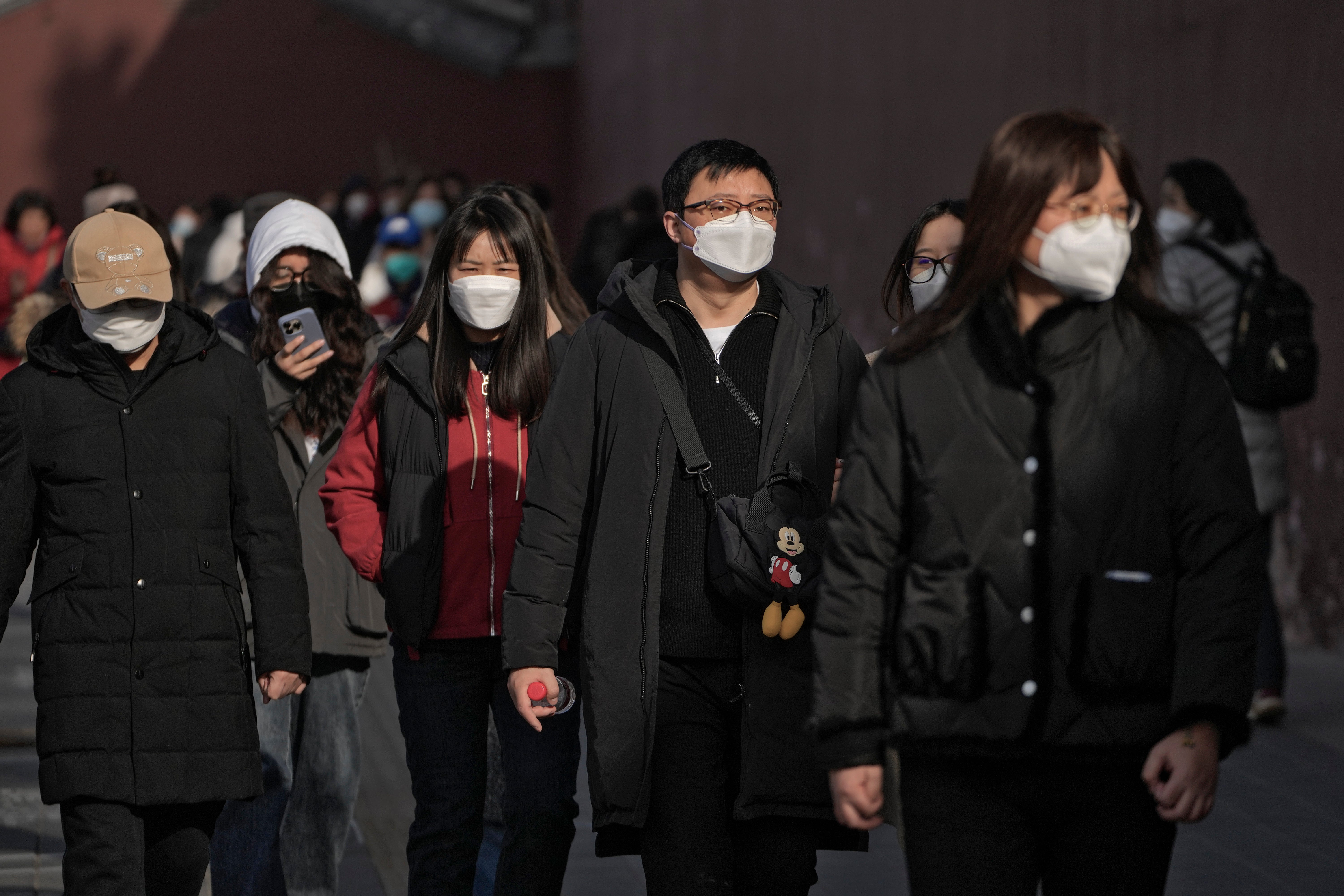China suspends social media accounts of COVID policy critics
China has suspended or closed the social media accounts of more than 1,000 critics of the government's policies on the COVID-19 outbreak, as the country moves to further open up

Your support helps us to tell the story
From reproductive rights to climate change to Big Tech, The Independent is on the ground when the story is developing. Whether it's investigating the financials of Elon Musk's pro-Trump PAC or producing our latest documentary, 'The A Word', which shines a light on the American women fighting for reproductive rights, we know how important it is to parse out the facts from the messaging.
At such a critical moment in US history, we need reporters on the ground. Your donation allows us to keep sending journalists to speak to both sides of the story.
The Independent is trusted by Americans across the entire political spectrum. And unlike many other quality news outlets, we choose not to lock Americans out of our reporting and analysis with paywalls. We believe quality journalism should be available to everyone, paid for by those who can afford it.
Your support makes all the difference.China has suspended or closed the social media accounts of more than 1,000 critics of the government’s policies on the COVID-19 outbreak, as the country moves to further open up.
The popular Sina Weibo social media platform said it had addressed 12,854 violations including attacks on experts, scholars and medical workers and issued temporary or permanent bans on 1,120 accounts.
The ruling Communist Party had largely relied on the medical community to justify its harsh lockdowns, quarantine measures and mass testing, almost all of which it abruptly abandoned last month, leading to a surge in new cases that have stretched medical resources to their limits. The party allows no direct criticism and imposes strict limits on free speech.
The company “will continue to increase the investigation and cleanup of all kinds of illegal content, and create a harmonious and friendly community environment for the majority of users," Sina Weibo said in a statement dated Thursday.
Criticism has largely focused on open-ended travel restrictions that saw people confined to their homes for weeks, sometimes without adequate food or medical care. Anger was also vented over the requirement that anyone who potentially tested positive or had been in contact with such a person be confined for observation in a field hospital, where overcrowding, poor food and hygiene were commonly cited.
The social and economic costs eventually prompted rare street protests in Beijing and other cities, possibly influencing the party's decision to swiftly ease the strictest measures.
China is now facing a surge in cases and hospitalizations in major cities and is bracing for a further spread into less developed areas with the start of the Lunar New Year travel rush, set to get underway in coming days. While international flights are still reduced, authorities say they expect domestic rail and air journeys will double over the same period last year, bringing overall numbers close to those of the 2019 holiday period before the pandemic hit.
The Transportation Ministry on Friday called on travelers to reduce trips and gatherings, particularly if they involve elderly people, pregnant women, small children and those with underlying conditions.
People using public transport are also urged to wear masks and pay special attention to their health and personal hygiene, Vice Minister Xu Chengguang told reporters at a briefing.
Nonetheless, China is forging ahead with a plan to end mandatory quarantines for people arriving from abroad beginning on Sunday.
Beijing also plans to drop a requirement for students at city schools to have a negative COVID-19 test to enter campus when classes resume Feb. 13 after the holiday break. While schools will be allowed to move classes online in the event of new outbreaks, they must return to in-person instruction as soon as possible, the city education bureau said in a statement Friday.
However, the end to mass testing, a lack of basic data such as the number of deaths, infections and severe cases, and the potential emergence of new variants have prompted governments elsewhere to institute virus testing requirements for travelers from China.
The World Health Organization has also expressed concern about the lack of data from China, while the U.S. is requiring a negative test result for travelers from China within 48 hours of departure.
Chinese health authorities publish a daily count of new cases, severe cases and deaths, but those numbers include only officially confirmed cases and use a very narrow definition of COVID-related deaths.
China has said the testing requirements aren’t science-based and has threatened unspecified countermeasures. Its spokespeople have said the situation is under control, and reject accusations of a lack of preparation for reopening.
If a variant emerges in an outbreak, it is found through genetic sequencing of the virus.
Since the pandemic started, China has shared 4,144 sequences with GISAID, a global platform for coronavirus data. That’s only 0.04% of its reported number of cases — a rate more than 100 times less than the United States and nearly four times less than neighboring Mongolia.
Meanwhile, Hong Kong also plans to reopen some of its border crossings with mainland China on Sunday and allow tens of thousands of people to cross every day without being quarantined.
The semi-autonomous southern Chinese city has been hard-hit by the virus and its land and sea border checkpoints with the mainland have been largely closed for almost three years. Despite the risk, the reopening is expected to provide a much-needed boost to Hong Kong’s tourism and retail sectors.